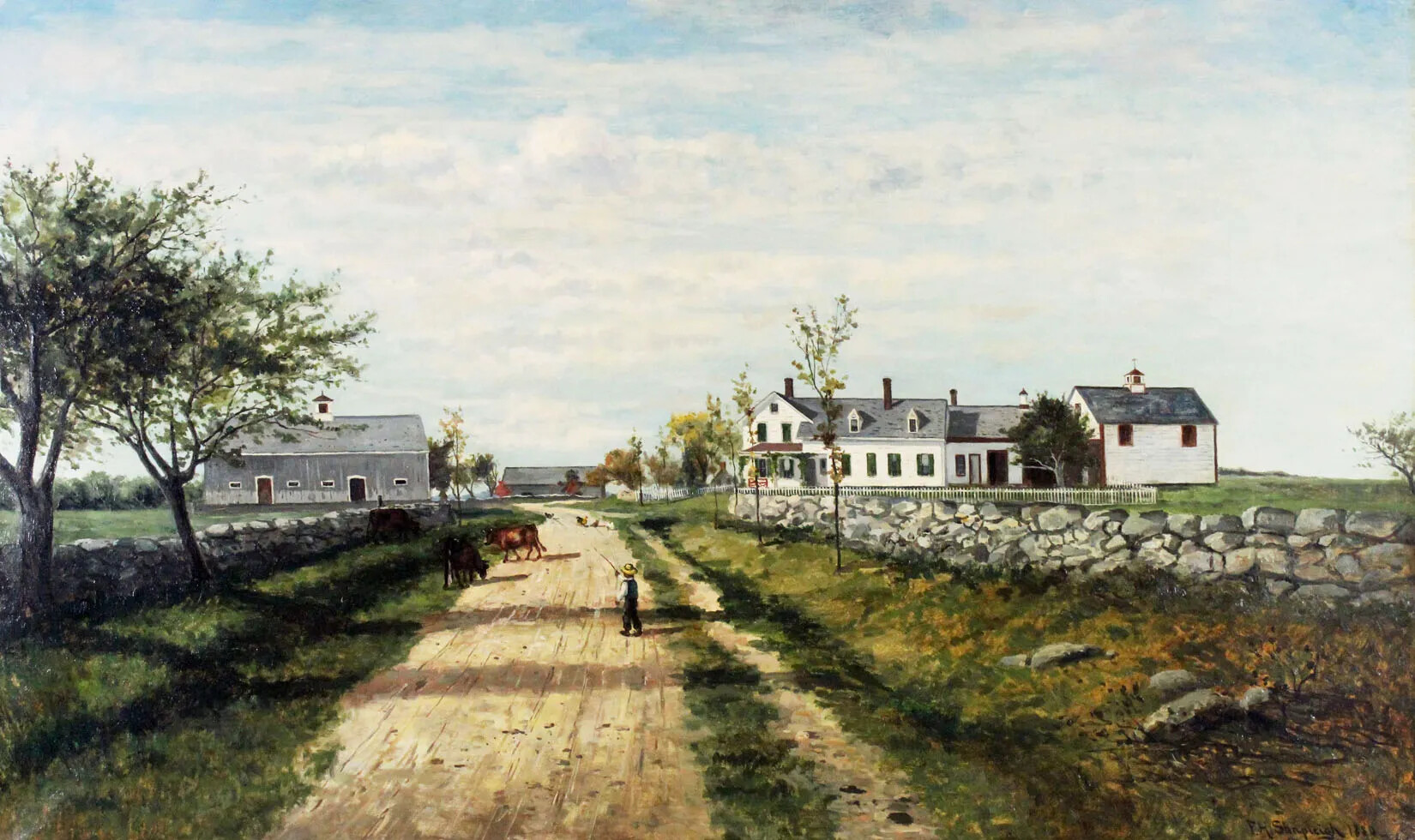For most of New Hampshire’s history, people have farmed the land. Agriculture was how most people supported themselves and their families for centuries. New Hampshire farms grow many different kinds of fruits and vegetables and produce a variety of goods. But the kinds of products that come from farms have changed over time.
In colonial times and in the decades after the American Revolution, farmers produced enough goods to feed, clothe, and house their families, but they had very little left over to trade or sell. The Industrial Revolution in the 19th century changed farming in New Hampshire. As factories were built all over the state, farmers began to produce goods to sell to mill owners or to people who lived in cities and couldn’t produce agricultural products on their own. The farmers then used the money they earned to buy the things they needed. Farming became part of the larger economy instead of being self-sufficient.












